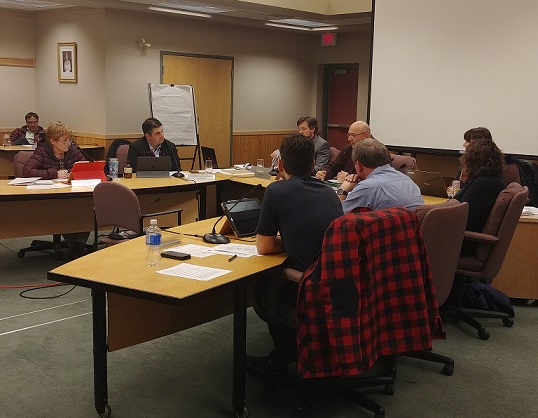After hearing feedback from the public, Castlegar City Council decided to support phasing in the Infrastructure Investment Levy (IIL) over seven years last night. The initial recommendation from City staff was for a five year period. CAO Chris Barlow says one thing that factored into that recommendation was the impact on reserves.
“As we stretch out the levy over a longer period it reduces taxation which is good, but then it also reduces the amount of money we have actually have available for capital each year.”
This means the City will be required to draw more on reserves to carry out the capital plan; however, enough of city council felt they had heard from residents and businesses that taxation would be too high. Councillor Bergen Price originally supported the five year plan, but changed his vote yesterday
“I have to listen to the public and what the public’s going to say, it’s part of my job here. So as a new councillor, just trying to learn the ropes and listen to existing councillors, the mayor, trying to take all opinions into account.”
A vote to phase the levy in over eight years was defeated before moving ahead with seven. Councillors Sue Heaton-Sherstobitoff, Dan Rye and Florio Vassilikakis were the other three votes in favour.
Councillor Cheryl McLeod says she was comfortable with the staff recommendation.
“As a new councillor when I first got here, talking about budget, staff recommended the five year, they said that that was the best way to get our reserves back to do the capital projects that we’d all agreed were important. Part of my job, being so new, is to take their recommendation and right from the start they felt that the five year plan was the best and truly, I didn’t have a lot of push back from the community.”
Mayor Bruno Tassone preferred a six year phase in and councillor Maria McFaddin was absent.
The 2019 tax increase for the average house was estimated at $55.95 if the IIL was phased over five years and $46.11 for seven. That number is likely to change slightly as the draft budget is prepared. The drafts for the operating and capital budgets will come back to council for first reading before going to the public for any last input.




